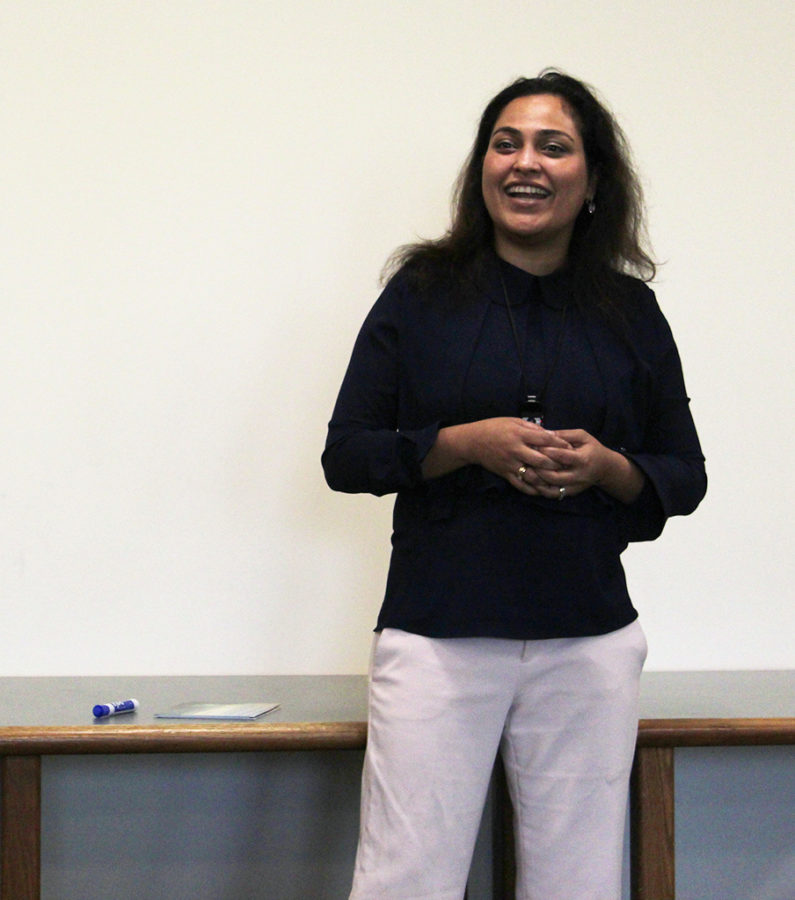Psychiatrist Dr. Afshan Khan speaks to parents about anxiety at Westbank Library
Dr. Afshan Khan, a psychiatrist in Westlake, lead an interactive talk and Q&A in the Westbank Library about the anxiety that Eanes students face on a day-to-day basis. The student support counselors, Kristi Waidhofer and Kristen Bryant, have organized this speaker series, covering various topics with different specialists, as a resource for parents in the community. By noon on March 28, the upper-level of the library was filled with parents listening intently and writing notes on what Dr. Khan had to say. Her talk was centered around the possible ways people express anxiety, acknowledging the normality of it all and for parents to be aware of how their stress affects their children.
Dr. Khan got a psychiatry degree in India before moving to the United States. She worked at UD Southwestern, a hospital in Dallas, as a therapist for the inpatient and outpatient program. Six years ago, she opened her own practice, Austin Family Psychiatry, on Bee Caves and is currently on the Deccan Alumni Association of North America board of directors. Through this organization, she is hoping to educate and bring insight into the world of mental disorders to her community.
“I don’t know if I can challenge the stigma, but my goal is to educate folks on what mental disorders and anxiety really mean,” Khan said in her opening statement for the parents.
Dr. Khan has two daughters who attend Eanes schools, so she can connect to the parents’ struggle because her children live in Westlake’s competitive community as well. By talking to parents, she hopes to pass on helpful coping skills that they can implement in their household which can have direct effects on individual students. For Dr. Khan, her goal when speaking is focused on how parents can help their children cope with anxiety. From there, they have the tools that can help them hone in on the anxiety that comes up for them when they compete.
“As parents, it’s important for you to tell your child that ‘it’s OK to be anxious,’” Dr. Khan said. “From then on, finding the root cause of that anxiety and treating it is just as important.”
According to Dr. Khan, a person’s environment at home and the relationships within it are the building blocks to how a person thinks, reacts and feels. While acknowledging the patients’ individual thoughts, she feels it’s a critical part of the treatment process to look at their family’s anxiety too. One’s family dynamics and interactions affect how the children express their own emotions.
“You go to a physician when somebody’s coughing at home, and the mom says ‘I was coughing and I might’ve given my child that cough to,’” Khan said. “No one ever looks at anxiety that way.”
To overcome performance anxiety specifically, she advised the audience to try eliminating the stressors at home to create the stability needed to tackle stressors on stage or in the classroom. Parents may not be able to control how their child feels outside their home, but they can counteract that nervousness with a place that makes them feel comfortable.

